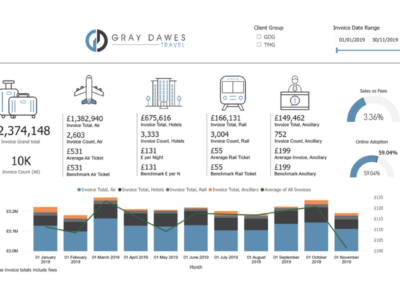MANAGING SLEEP FOR TRAVELLING ATHLETES
how to maintain proper rest before, during, and after a tripQUALITY SLEEP IS ONE OF THE BIGGEST FACTORS IN BETTER SPORTING PERFORMANCE…
Whether heading to training camps, travelling to tournaments, or flying to away games, athletes frequently move across time zones and experience disruptions to their regular sleep schedule.
Poor sleep can lead to reduced reaction time, increased injury risk, and decreased cognitive function—all of which are critical factors for elite competitors.
UNDERSTANDING THE IMPACT OF SLEEP ON SPORTS TRAVEL
Circadian Rhythm Disruptions
The body’s internal clock, or circadian rhythm, is naturally aligned with the local day-night cycle. Travel – especially across time zones – can significantly disrupt this cycle and lead to jet lag. Symptoms include fatigue, insomnia, difficulty concentrating, and even gastrointestinal issues.
Sleep Debt & Performance Decline
Lack of quality sleep leads to something called sleep debt, which can accumulate over time. Studies show that even one or two nights of poor sleep can negatively impact reaction time, decision-making, and endurance, all critical components for elite performance.
HOW TO OPTIMISE SLEEP BEFORE A TRIP
Preparing properly before travel can minimise sleep disturbances and enhance local time adaptation upon arrival.
1
Adjust Gradually to Time Zone Changes
For long-distance trips, athletes should gradually shift their sleep schedule by 30-60 minutes per day toward the destination’s time zone. This method helps reset the circadian rhythm before departure.
2
Manage Light Exposure
When travelling east (e.g. from New York to London), increase morning light exposure and reduce evening light exposure to advance the body clock. When travelling west (e.g. from Los Angeles to Tokyo), Increase evening light exposure and minimise morning light exposure to delay the body clock.
3
Introduce Changes to Sleep Habits
Ensuring good sleep habits before departure makes it easier to recover from travel-related disruptions. Key practices include maintaining a consistent sleep-wake schedule, avoiding caffeine and electronic screens before bedtime, and sleeping in a cool, dark, and quiet environment.
4
Consider Introducing a Nap Schedule
Naps can help offset upcoming sleep disruptions. A short 20-30 minute nap in the afternoon can enhance alertness without interfering with nighttime sleep. Additionally, naps can improve mood, boost cognitive performance, and reduce stress, making them a valuable tool for maintaining overall well-being.
HOW TO OPTIMISE SLEEP DURING A TRIP
There are numerous tactics to manage sleep while in transit to ensure athletes arrive in top condition.
1
Choose Optimal Travel Times
Whenever possible, teams should schedule flights that align with athletes’ natural sleep-wake cycles. Overnight flights can be beneficial if the destination is ahead in time, allowing for in-air sleep to facilitate adjustment.
2
Create a Sleep Friendly Travel Environment
For teams flying commercially, selecting seats with minimal noise and disturbance (window seats, front of the plane) can improve sleep quality. Charter flights or private team travel allow for better control over the sleeping environment. Essential in-flight sleep aids include neck pillows and noise-cancelling headphones, and the strategic use of Melatonin supplements to help regulate sleep timing.
3
Improve Sleep Positioning
Athletes should recline their seats as much as possible, use pillows to support the neck and lower back and maintain a comfortable temperature by layering clothing appropriately. Drinking plenty of fluids is also essential, as air travel can be dehydrating and negatively impact sporting performance.
4
Make Smart Nutrition Choices
Managing a healthy diet is essential to better sleep. Avoid heavy, rich foods – such as bread or pasta – a few hours before sleep, stay hydrated (while limiting caffeine and alcohol), and eat protein-rich snacks to promote sustained energy levels.
GET DEEPER SPORTS TRAVEL INSIGHTS WITH YOURDATA
YourData provides you with full and detailed reporting, covering every area of travel spend. This ensures complete visibility of your travel programme and highlights any areas of opportunity for improvement.
Powered by Microsoft Power BI, data reports and analytics can be accessed online through a secure individual login or via monthly PDF reports sent to each of your budget holders across the company, helping you monitor performance live against agreed KPI’s.
HOW TO OPTIMISE SLEEP ON ARRIVAL
Preparing properly after travel can help athletes quickly acclimatise to their new environment and timezone.
1
Align with Local Time
Upon arrival, athletes should immediately align their activities with the local time. This means sleeping only during local nighttime hours – even if fatigued – eating meals at appropriate local times, and getting outside in natural daylight to help reset the circadian rhythm.
2
Introduce Controlled Napping
Controlled napping can help athletes enhance alertness, reaction time, and overall cognitive function, especially during intense training periods or travel. Short naps of 20-30 minutes can reduce fatigue without causing grogginess, allowing for better performance in both physical and mental tasks.
3
Ensure Accommodation is Sleep-Ready
Ensure that hotels or other accommodations are set up for optimal sleep conditions before arrival. Use blackout curtains and white noise machines to eliminate disturbances, keep the room temperature cool (around 65-68°F or 18-20°C), and request firm mattresses and quality bedding if possible.
4
Adopt Hydration & Recovery Techniques
Hydration aids recovery by preventing muscle cramps and headaches associated with dehydration. Other post-travel recovery techniques include light stretching and mobility work, cold plunges or contrast showers, and massage or compression therapy.



